 Last additions - Hama-rikyu Gardens 浜離宮恩賜庭園 Last additions - Hama-rikyu Gardens 浜離宮恩賜庭園 |

Old photo of Enryokan State Guesthouse.Sep 27, 2018
|
|
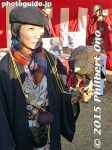
Sep 18, 2016
|
|

Falconry demonstrations held at Hama-Rikyu Gardens on Jan. 3 in Tokyo.Sep 18, 2016
|
|
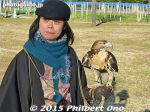
Sep 18, 2016
|
|
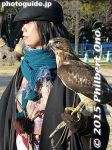
Falconry demonstrations held at Hama-Rikyu Gardens on Jan. 3 in Tokyo.Sep 18, 2016
|
|
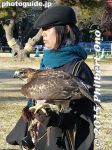
Sep 18, 2016
|
|
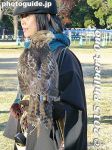
Sep 18, 2016
|
|
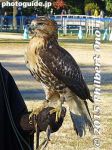
Sep 18, 2016
|
|
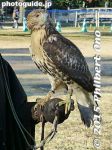
Sep 18, 2016
|
|
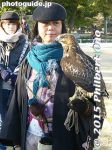
Sep 18, 2016
|
|
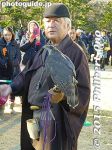
Sep 18, 2016
|
|
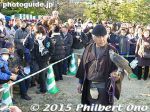
After the demo, they showed off the hawks for photos.Sep 18, 2016
|
|

They allowed a few people from the audience to try falconry. This is an Italian who was lucky enough to be chosen to hold and release this hawk.Sep 18, 2016
|
|

Falconry demo was held twice in the day. The first demo had the hawks released from the top of a nearby skyscraper and they flew down to their falconers in the garden.For the demo, they showed the hawks swoop low from one falconer to another. They also showed a live capture (kill?) of a released pigeon. Very fast.Sep 18, 2016
|
|
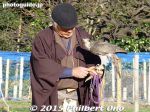
Magnificent birds. The local crows were quite alarmed by the presence of these hawks.Sep 18, 2016
|
|
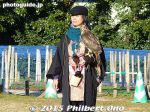
Notice that falconer wears a small pouch on his waist. It contains bird food. The bird is rewarded each time it does a trick. Sep 18, 2016
|
|
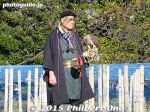
They don't use the same type of falconry birds that were used by Tokugawa shoguns. They now use Harris' hawks or red-tailed hawks imported to Japan. They are highly intelligent birds and can recognize human faces. Sep 18, 2016
|
|

There were several falconers each with his or her own hawk. They are members of a falconry preservation group. They've been holding this event for 23 years here.Sep 18, 2016
|
|

After the aikido, falconry demonstrations were held at Hama-Rikyu Gardens on Jan. 3 as a New Year's event. (放鷹術実演) Hama-Rikyu Garden used to be where the Tokugawa shoguns and the Imperial family practiced falconry.Sep 18, 2016
|
|

Sep 18, 2016
|
|
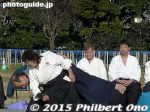
Aikido demonstrations at Hama-rikyu on Jan. 3, 2015.Sep 18, 2016
|
|
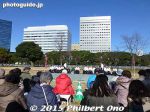
First they held aikido demonstrations.Sep 18, 2016
|
|
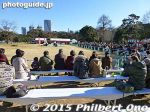
Spectator seats were set up.Sep 18, 2016
|
|
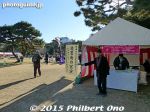
Hama-rikyu holds New Year's events on Jan. 3.Sep 18, 2016
|
|
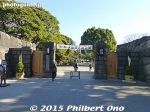
Entrance to Hama-rikyu Onshi GardensSep 18, 2016
|
|

Plum blossomsDec 11, 2007
|
|

Dec 11, 2007
|
|

Plum blossomsDec 11, 2007
|
|

CamelliasDec 11, 2007
|
|

CamelliasDec 11, 2007
|
|

Duck-hunting wallDec 11, 2007
|
|

Tiny slits to look at the ducksDec 11, 2007
|
|

Former boat landing for the shogunDec 11, 2007
|
|

Shiodome skyscrapers overwhelm the little tea houseDec 11, 2007
|
|

CamelliaDec 11, 2007
|
|

Sightseeing boat pierDec 11, 2007
|
|

Tea house, pond, and pine treeDec 11, 2007
|
|

Dec 11, 2007
|
|

Nakajima-no-Ochaya Tea HouseDec 11, 2007
|
|

Duck hunting gutterDec 11, 2007
|
|

Nakajima-no-Ochaya Tea HouseDec 11, 2007
|
|

Dec 11, 2007
|
|

Nakajima-no-Ochaya Tea House on the small island in the pond.Dec 11, 2007
|
|

Dec 11, 2007
|
|

Dec 11, 2007
|
|

Dec 11, 2007
|
|

The garden would look better without all these skyscrapers in the background.Dec 11, 2007
|
|

Straw band wrapped around the pine tree trunk to catch bugs crawling on the trunk.Dec 11, 2007
|
|

Dec 11, 2007
|
|

Dec 11, 2007
|
|

Dec 11, 2007
|
|

Dec 11, 2007
|
|

Dec 11, 2007
|
|

Dec 11, 2007
|
|

Dec 11, 2007
|
|

Dec 11, 2007
|
|

Dec 11, 2007
|
|

Pine trees along the shoreDec 11, 2007
|
|

Dec 11, 2007
|
|

Otsutaibashi Bridge over the pond.Dec 11, 2007
|
|

Dec 11, 2007
|
|

Otsutaibashi BridgeDec 11, 2007
|
|

Shiori-no-Ike PondDec 11, 2007
|
|

Shiori-no-Ike Pond with ducks. This is a tidal pond.Dec 11, 2007
|
|

Dec 11, 2007
|
|

Another entranceDec 11, 2007
|
|

Dec 11, 2007
|
|

Dec 11, 2007
|
|

Dec 11, 2007
|
|

Dec 11, 2007
|
|

Another entranceDec 11, 2007
|
|

This was the entrance and bridge which the Emperor passed through when visiting the garden.Dec 11, 2007
|
|

Dec 11, 2007
|
|

A small garden and little stream which was behind the Enryokan State Guesthouse.Dec 11, 2007
|
|

Dec 11, 2007
|
|

English explanation for yuki-zuri which are those strings propping up the pine tree branches as a countermeasure against snow.Dec 11, 2007
|
|

Many pine trees in the gardenDec 11, 2007
|
|

Gingko tree and pine tree in autumnDec 11, 2007
|
|

Gingko tree in autumnDec 11, 2007
|
|

Gingko tree and pine tree in autumnDec 11, 2007
|
|

Walking through the Enryokan site, now dotted with pine trees.Dec 11, 2007
|
|

Dec 11, 2007
|
|

The U-shaped Enryokan was used as a guest house until 1883 when the new Rokumeikan 鹿鳴館 guest house was completed. Due to old age, the Enryokan was torn down in 1889. Many new Shiodome skyscrapers loom over the site.Dec 11, 2007
|
|

Site of the Enryokan State Guesthouse. Under former Tokyo Governor Masuzoe, Tokyo had plans to faithfully reconstruct the Enryokan in time for the 2020 Tokyo Olympics. Plan has been shelved.Dec 11, 2007
|
|

Site of the Enryokan State Guesthouse. Built in May 1869, it was Japan's first Western-style building made of stone. It served as an office of the Japanese navy before it was refitted as guest house. 延遼館Dec 11, 2007
|
|

Dec 11, 2007
|
|

Site of the Enryokan State Guesthouse. Former U.S. President Ulysses Grant and his wife stayed there for two months in 1879 during their world tour. Hawaii's King Kalakaua also stayed here in 1881. He traveled by horse carriage to meet Emperor Meiji.Dec 11, 2007
|
|

Side view of 300-year-old pine treeDec 11, 2007
|
|

300-year-old pine treeDec 11, 2007
|
|

Huge 300-year-old pine treeDec 11, 2007
|
|

300-year-old pine treeDec 11, 2007
|
|

Map of Hama-rikyu Gardens. Main entrance is on the upper left corner.Dec 11, 2007
|
|

Entrance to Hama-rikyu Onshi GardensDec 11, 2007
|
|

Marker indicating the garden as a sightseeing spot and Special Historic Site.Dec 11, 2007
|
|

MoatDec 11, 2007
|
|

Bridge to Hama-rikyu Gardens. Guests staying at the Enryokan State Guesthouse during the 19th century would cross this bridge.Short walk from JR Shimbashi Station and Shiodome Station on the Oedo Subway Line and the Yurikamome line.Dec 11, 2007
|
|

Moat with Tsukijigawa RiverDec 11, 2007
|
|

Hama-rikyu Onshi Teien Gardens is a waterfront garden built by the Tokugawa shoguns in the 17th century. During the Meiji Period, it became a Detached Palace for the Imperial family who gave the garden to the Tokyo in 1945. It used to have duck-hunting grounds. It was also the site of the Enryokan State Guesthouse where foreign dignitaries stayed such as former US president Ulysses Grant and Hawaii's King David Kalakaua.Dec 11, 2007
|
|
|
|
|
|